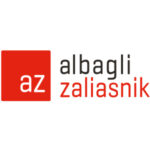

In recent times, conversations have become widespread around the so-called “Economic Crimes Law” that creates a series of new crimes and establishes charges for the company and management positions if any of the aforementioned crimes are proven. reform incorporates.
In this context, one of the challenges for business organizations is related to implementing internal investigation processes or background collection, which allow them, on the one hand, to act diligently in the face of crime prevention models, but on the other, to give due protection of the fundamental rights of workers. The above, having as an additional element the role carried out by the Labor Directorate (DT) to safeguard, promote and protect the rights of workers.
To this end, many companies have decided to formalize, regulate and establish protocols in case of infractions or illegal acts that occur within the organization. This implies modeling the administration and management powers of the employer and generating certainties regarding the protocols that must be carried out.
In this context, the case that we discuss on this occasion is related to the reprimand given to a worker who was reported for situations of alleged workplace harassment, which is why an investigation process was carried out, in which later, also the DT intervened.
On this occasion, the company decided, as part of a mediation process, to adopt a reprimand against the reported worker, who judicially challenged the decision.
Knowing the respective case (Cause Rit O-94-2020 of the 2nd Labor Court of Santiago), the judge carried out an interesting analysis regarding the importance of an investigation process implemented in a company, and the due compliance that must be carried out. get this one.
In fact, on this matter it indicated that “as was proven (…), there is no doubt that the warning issued to the plaintiff, which motivated this trial, was issued outside the procedure regulated by the defendant itself to investigate and sanction a complaint contained in its internal regulations.”
It continues “The plaintiff’s complaint is that, by not complying with its own regulations, it would be prevented from applying the sanction, which arose as stated as a result of a complaint from one of the unions and the investigation carried out by the Labor Inspection and the findings of violation of fundamental rights.”
In this sense, the judge determines that “The sanction is presented as an act of force, which directly affects the worker, making him responsible for an impact on other workers, negatively defining his position within the company. For this reason, recognizing the subordinate structure of the employment relationship and the power of the employer legally validated and normalized by the employment contract, we must understand that the disciplinary power expresses an act of private self-protection of one over another, which in the context of submission and dependence is formulated as an act of violence due to the effects it produces.”
“It is essential to answer whether this reprimand is addressed within a process that grants guarantees to the plaintiff who was able to exercise an adequate defense, guaranteed at the constitutional level through paragraph 3 of article 19 of the Fundamental Charter, which recognizes the universal prerogative of equal protection of the law, the right to legal defense, the right to be judged by the natural judge, and the right to a fair and rational procedure, a guarantee that, although it is contemplated for this court, the employer is expected to respect when exercising its power. disciplinary action and the extreme of a legal defense could not be exercised by the worker, due to the nature of the administrative process and as it is clear that this was carried out by the Iquique Labor Directorate, which in the opinion of this sentencing judge is sufficient to accept the demand,” the court concluded.
This is an interesting statement that establishes the scope of the research processes within companies, the importance of their due compliance if regulated and implemented, being a relevant input for those organizations that are working on their Models. of Compliance and Crime Prevention.
For more information you can contact :

Francisca Franzani | Compliance Group Director | ffranzani@az.cl




